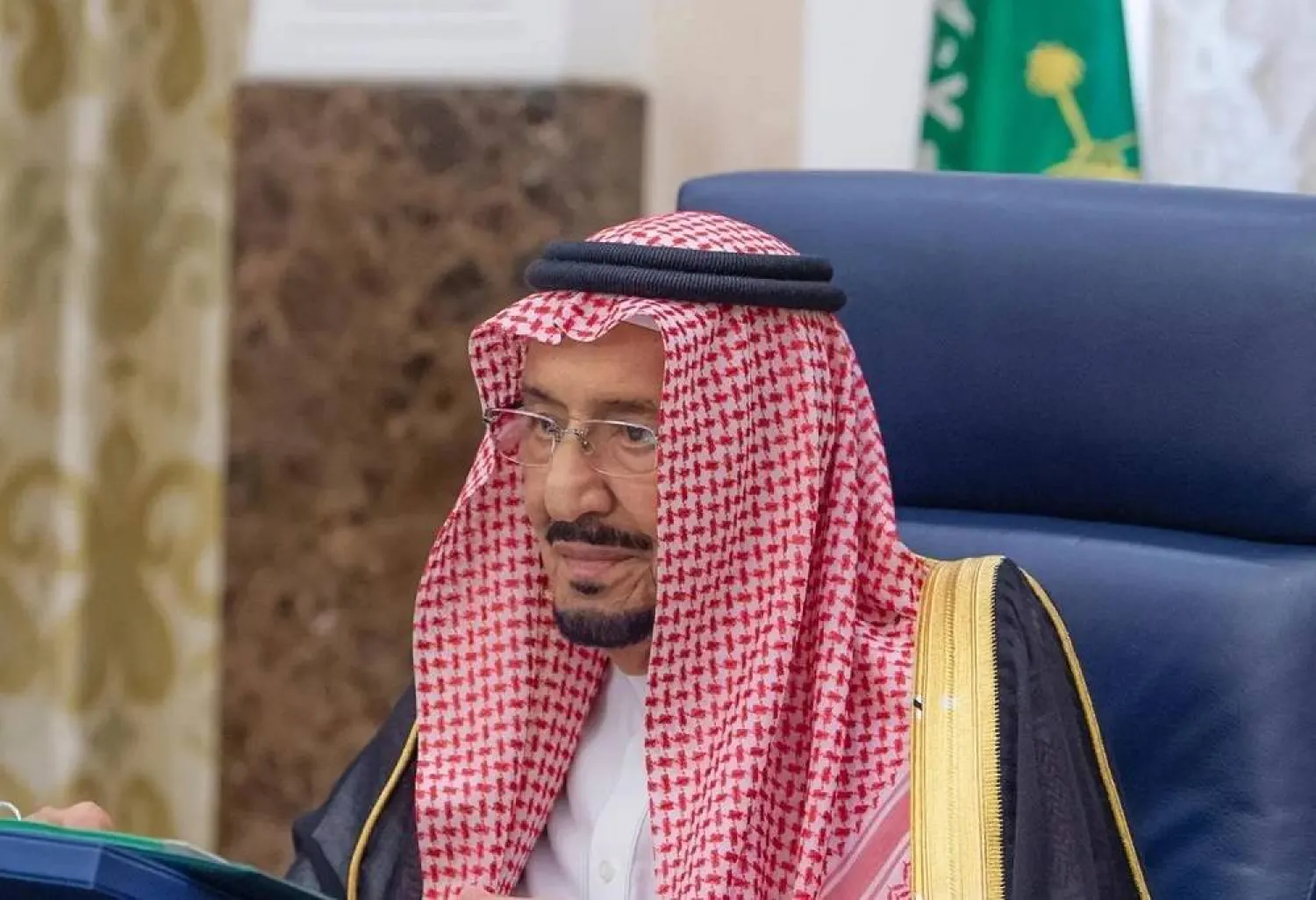The Saudi government stressed on Tuesday that the Kingdom's contribution to the establishment of an economic corridor connecting India, the Middle East and Europe stems from its strategic geographical location and global leadership as a reliable source of energy.
Custodian of the Two Holy Mosques King Salman bin Abdulaziz chaired the cabinet meeting that was held in NEOM.
The Cabinet discussed the memorandum of understanding signed by Saudi Arabia with the United States on cooperation in developing a protocol for the establishment of intercontinental green transit corridors.
The corridors would pass through the Kingdom, connecting Asia with Europe with the aim of facilitating the transport of renewable electricity and clean hydrogen through transmission cables and pipelines, as well as rail links.
The cabinet was briefed on the messages King Salman dispatched to the interim president of Burkina Faso and president of the Ivory Coast. The ministers were also briefed on the telephone calls held by Prince Mohammed bin Salman, Crown Prince and Prime Minister, with the presidents of Russia and Ukraine.
The ministers highlighted the positive outcomes of the official visit paid by Crown Prince Mohammed to India where he met with its President Droupadi Murmu and Prime Minister Narendra Modi.
The inaugural meetings of the Saudi-Indian Strategic Partnership Council was held during his visit. The council culminated in several memorandums of understanding that are expected to expand cooperation in all fields, in the interest of both peoples.
While in India, Crown Prince Mohammed attended the G20 summit in New Delhi. The ministers lauded the outcomes of his participation at the event, saying they reflect Saudi Arabia’s global standing, political and economic weight and leading role in ensuring the stability of the global economy and energy markets.
The cabinet praised the results of the first strategic dialogue between the Saudi and Japanese foreign ministers, stressing the depth of relations between the two countries and the importance of continuing coordination and cooperation at various levels.
The cabinet highlighted the telephone call held by Crown Prince Mohammed with Morocco’s King Mohammed VI to underline Riyadh’s solidarity with Morocco in wake of the devastating earthquake that struck last week.
The Saudi leadership directed concerned authorities to urgently provide the necessary relief and humanitarian aid to help ease the impact of the disaster. The gesture reflects the Kingdom's crucial role in aiding people affected by natural disasters or in need around the world.
During its meeting, the cabinet approved the by-law of the General Authority of Media Regulation.
The authority would now be tasked with developing, organizing and overseeing the entire media sector in the Kingdom with the aim of elevating its content, supporting its infrastructure and increasing its contribution to the economy. This will allow the media to play a pioneering role in offering transparent and credible content.
The authority will be responsible for overseeing all forms of media, including advertisements and social media platforms, and it will monitor their content, whether they are posted by individuals, companies or institutions.
The development of the media sector is among the pillars of the Kingdom’s Vision 2030 programs.
The authority would work on fostering local talents, attracting investors, ensuring the rights of workers in the media sector, supporting research and media studies, creating job opportunities and protecting content from piracy.
Minister of Media and Chairman of the General Authority of Media Regulation Salman Al-Dosari expressed his gratitude to the Saudi leadership for approving the by-law.
He hoped the new move would develop the sector and meet the aspirations of the wise leadership.









